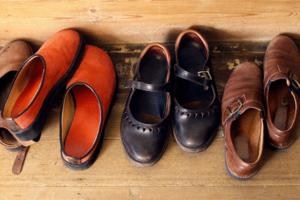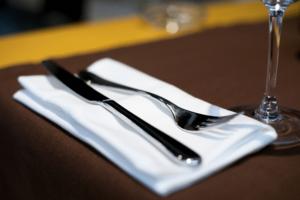Health
/ArcaMax

Laura Yuen: Why it's not rude to ask your house guests to take their shoes off
Sometimes you just have to wonder if those elites at the New York Times are purposely trolling us. I'm old enough to remember the Great Grape Salad Controversy of 2014, when the Times' food journalists declared a special Thanksgiving dish that evoked each of the 50 states.
Was Minnesota's contribution something with walleye or wild rice, ...Read more

Denver comic using TikTok to connect art museums and galleries with a younger, more diverse audience
DENVER — Even in Denver’s crowded comedy scene, Sammy Anzer stands out. The 35-year-old, originally from Queens, New York, is lanky and charming, with a light swagger, pastel-spiked fashion sense, and a giant smile that tees up his punchlines.
He’s one of the most active, familiar names in Denver comedy, having headlined clubs, colleges ...Read more

Can chess games and toilet paper change prison culture? Inside San Quentin's big experiment
SAN QUENTIN, Calif. — To someone living outside these dank walls, the changes might seem small.
A sergeant greets a prisoner with "good morning" rather than barking an order. Guards start calling the prisoners "residents." They shake hands, exchange jokes.
The toilet paper locker gets replenished when its empty. The men don't have to ask.
...Read more

On Gardening: Pineapple lily production a crowning achievement for gardeners
The Garden Guy fell in love with the pineapple lily during the years as director of the Coastal Georgia Botanical Garden in Savannah. Every year they returned and did their beautiful display without any extra attention from any of the horticulturists. They also enlarged their clumps giving multiple blooms. All I could think was how in the world ...Read more

Heidi Stevens: 'Childless cat lady' attacks on Kamala Harris betray a deep misunderstanding about what it means to be pro-family
When President Joe Biden endorsed Vice President Kamala Harris as the Democratic nominee for president, her critics quickly leaned into the childless cat lady narrative.
“Really simple, underdiscussed reason why Kamala Harris shouldn’t be President,” lawyer and conservative commentator Will Chamberlain wrote on X. “No children.”
“...Read more

Ask Anna: Can you be friends with someone you once had romantic feelings for?
Dear Anna,
My boyfriend (26M) is still friends with a woman (25F) he had feelings for a few years ago. They never dated or had any physical relationship, and he insists those feelings are long gone. I asked him to unfollow her on social media because I believe in cutting ties with past romantic interests. This is a personal boundary for me, and...Read more

4 essential food safety tips for summertime gatherings
Summer is a season of outdoor gatherings, barbecues and picnics, where food is often at the center of the festivities. However, the warm weather also creates ideal conditions for the growth of harmful bacteria, increasing the risk of foodborne illnesses.
It's critical that you follow food safety recommendations so you can enjoy hosting and ...Read more

Steve Lopez: Perks of old age: Nobody says, 'Grandpa, would you please move this refrigerator?'
Aging has its drawbacks, if you hadn't noticed.
But are there any benefits to getting older, other than the fact that it beats the alternative?
I asked that question of readers a few weeks ago, and apparently the answer is yes, yes, yes, yes, and yes again, according to the hundreds who chimed in.
"When I asked for pre-boarding on a flight ...Read more

Erika Ettin: My date suggested a restaurant I can't afford -- What do I do?
There’s so much to stress about when it comes to a first date — what to wear, what conversation topics to avoid, if you’re about to get catfished — that another big obstacle is often overlooked: the financial aspect of dating. Even grabbing drinks a few times a week can really add up over time, and the last thing you want is to turn down...Read more

During the pandemic, women embraced their grays. Now, some are going back to the colorist.
PHILADELPHIA — During the pandemic, Marilyn Frasier heeded the once-mandatory — then age-affirming — call to embrace her gray. So, she stopped coloring her naturally black hair a dark brown and put full trust in her salty white roots.
"I let it grow out," said Frasier, 72, who lives in Center City. "It looked OK. Everyone told me it ...Read more

As South Florida heats up, ice immersion cools the body -- fast
FORT LAUDERDALE, Fla. -- Deanna Young, 31, lowers herself into a 100-gallon tub filled with ice water at her Delray Beach gym. After 45 minutes of cardio and strength exercises in the intense Florida heat, she wants to cool off fast.
Submerging into the frigid water, her body instantly feels a cold jolt, but then relaxes as she concentrates on ...Read more

The Kid Whisperer: How to handle a kid you're afraid to take on vacation
Dear Kid Whisperer,
I have a 12-year-old son. His mother (my ex-wife) and I made a lot of mistakes with him, especially when he was much younger. He has been really disruptive in the house and even violent with his younger stepbrothers. We have a family vacation coming up in a couple of weeks and I’m thinking about not taking him. I would ...Read more

Ex-etiquette: Is he cheating?
Q. I think my boyfriend is cheating. We dated for about three months and then he moved in. We’ve been together for about 6 months now. Here’s the problem: A few months ago, he stopped coming home every night. When I ask him where he has been, he says he was drinking with friends and stayed at one of their homes. I think he should call me and...Read more

Lori Borgman: The weather is always a hot topic
Some people are drawn to social media apps -- I'm drawn to weather apps.
I check weather apps more frequently than I check news apps. Weather apps tend to be less alarming than the news apps. Even in tornado season.
I don't mean to brag, but I know the predicted highs, lows and percentage possibilities for rain for the next five days in three ...Read more

In a hot LA neighborhood full of brown lawns, his DIY native plant garden thrives
Water-hungry lawns are symbols of Los Angeles' past. In this series, we spotlight yards with alternative, low-water landscaping built for the future.
____
LOS ANGELES -- The temperature was in the 90s in West Hills, but that didn't deter an astonishing number of monarch butterflies, hummingbirds and bees from feeding on the California-...Read more

Jerry Zezima: Hair today, not gone tomorrow
I don’t want to give lip service to elections, one of which is coming up in the fall, but I recently won a contest by a vote so overwhelming that it amounted to much more than a whisker.
That’s why, thanks to the support of my grandchildren, who are not too young to have cast ballots, I am keeping my mustache.
The issue came up when my ...Read more

NY students banned from using phones first hated, then loved it
Signs of withdrawal began to show immediately.
At a high school in upstate New York that had banned mobile phones, a student was constantly reaching for her nonexistent device and grabbing air. Hallways rang with the sound of kids trying to smash locks and get to their devices. At another school in the Bronx, students plotted a protest.
...Read more

More couples are hiring wedding content creators, so they and their guests can 'live in the moment'
PHILADELPHIA — In the car on the way home from her wedding, Bayley Shanley's phone pinged with a notification from one of her vendors.
As her new husband drove, Shanley flipped through more than 500 candid photos and videos.
She watched her bridesmaids walk down the aisle, a moment she had missed, and relived the speeches. She sent her ...Read more

At the this library, new treasures are still being uncovered
BERKELEY, Calif. -- As a postdoctoral scholar at UC Berkeley’s Bancroft Library, Giuliano Sidro is a serious expert on ancient writings, but his seriousness turns to silliness when he explains one of the findings in a nearly-4,000-year-old piece of papyrus.
“This right here,” he says, giggling, “is the earliest ever mention we have of ...Read more

On Gardening: Tiara Pink a jewel of a Supertunia
One of the plants that literally took your breath away at the plant trials this year was the new Supertunia Tiara Pink. Shoot, I am not even a pink flower guy in the least but this one had me mesmerized. Subsequently the ones made available to me in testing have been the same, a "Holy wow!"
I’ve recently posted a photo on my Facebook page and...Read more
Popular Stories
- He's 11 and makes $100,000 a year riding his bike in the suburbs. Police are not pleased
- As South Florida heats up, ice immersion cools the body -- fast
- Can chess games and toilet paper change prison culture? Inside San Quentin's big experiment
- NY students banned from using phones first hated, then loved it
- 12 hours overnight at one of Chicago's last 24/7 diners





